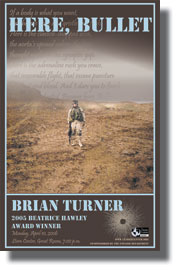Nina Davenport
Documentary Film Director
Operation Filmmaker
 Wednesday, September 16 – Film Showing – Operation Filmmaker
Wednesday, September 16 – Film Showing – Operation Filmmaker
Stern Center, Great Room, 7:00 p.m.
Thursday, September 17 – Discussion with film director, Nina Davenport
Stern Center, Great Room, 7:00 p.m.
Do-gooder intentions go disastrously wrong when Hollywood gives a young Iraqi film student the chance of a lifetime. Operation Filmmaker tells the fascinating and riveting story of this student’s odyssey in the West, which has uncanny parallels to America’s recent misadventures abroad.
Topical Background
Many Americans expected Operation Iraqi Freedom to be a quick intervention welcomed by the Iraqi people. Yet, over six years later, an American occupation continues. Hundreds of thousands of Iraqis and over 5,000 Americans have perished in the conflict since 2003. Millions have become refugees and sectarian violence persists. Our initial expectations were upset; our ignorance of Middle Eastern culture exposed.
Inspired by the 2003 MTV profile of Iraqi film student Muthana Mohmed, American actor Liev Schreiber invited the young man to intern on a Hollywood movie set. Documentary maker Nina Davenport immediately saw an opportunity: she would tape Muthana’s Hollywood internship. “I thought the film would be called The Kindness of Liev Schreiber,” she later said. However, cultural differences Read more




